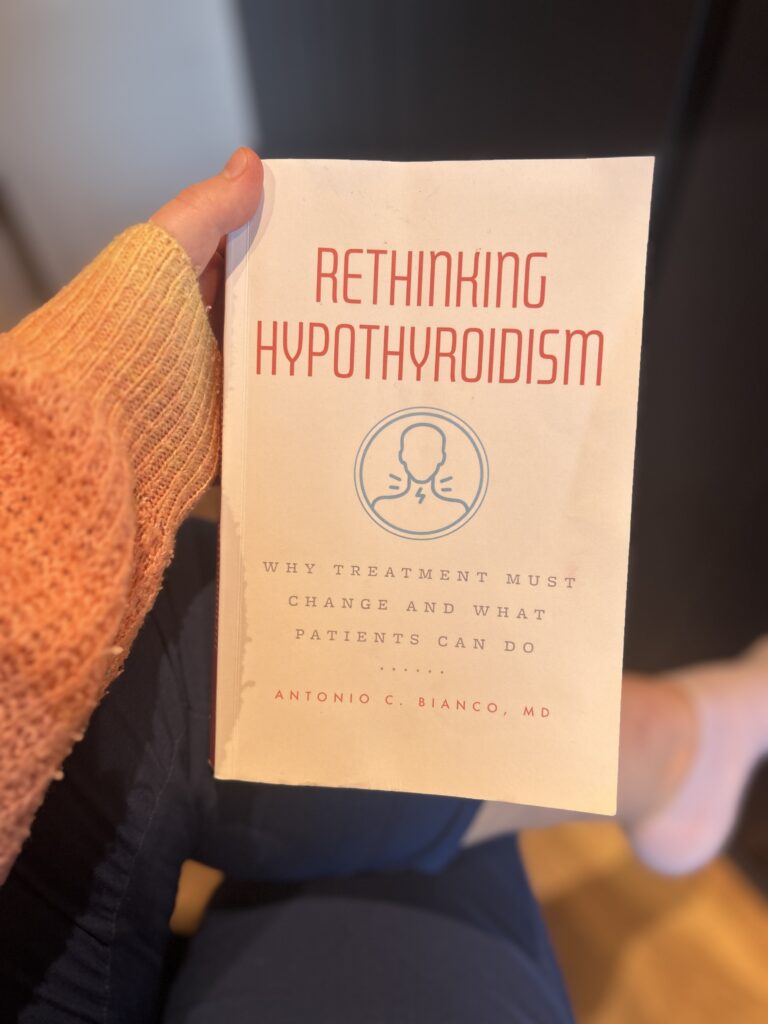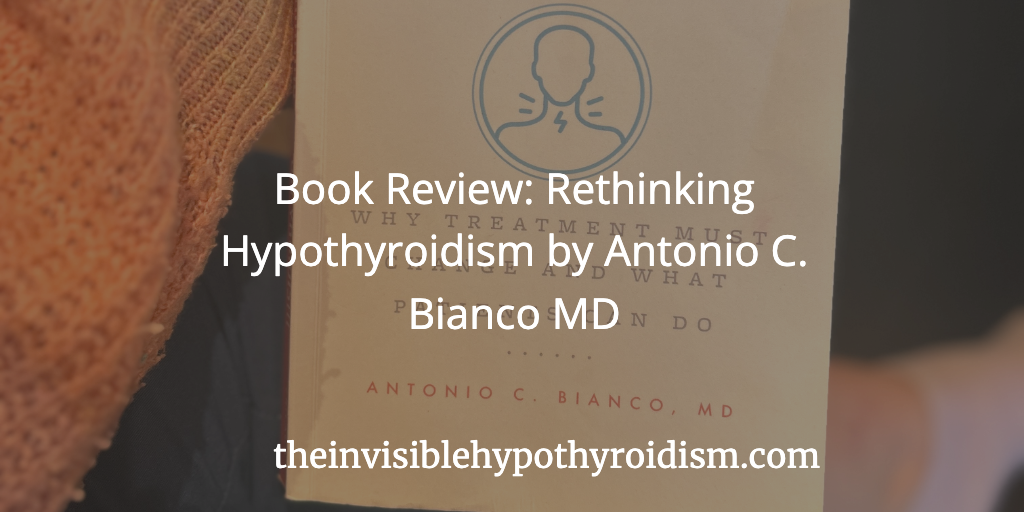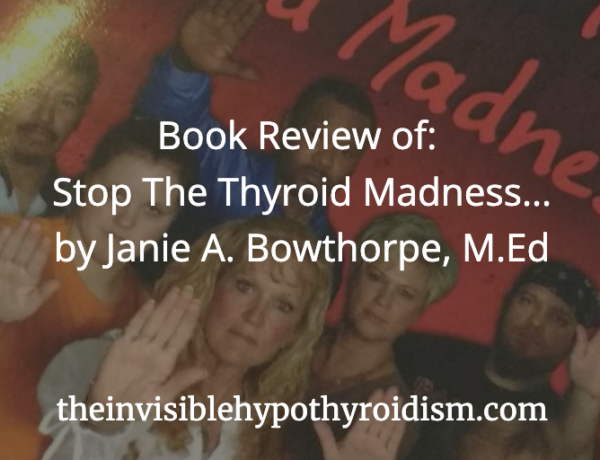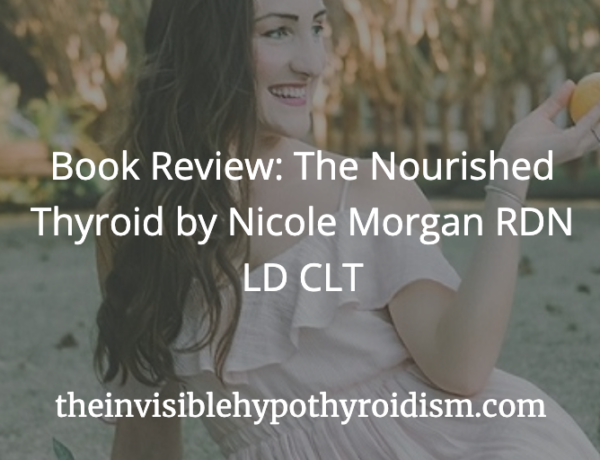
This book, released recently, has been highly anticipated and celebrated in the thyroid world.
“Rethinking Hypothyroidism: Why Treatment Must Change and What Patients Can Do” looks to address why the standard treatment for hypothyroidism, T4-only synthetics, is letting many thyroid patients down, as well as why using the TSH test alone is contributing to this issue.
Dr Bianco calls for change, as a traditionally trained doctor who sees ‘the error of his ways’ and now promotes the use of more comprehensive thyroid testing as well as a wider range of treatment options.
I may reference back to this book and what I’ve learned from it throughout my blog posts.
Dr Bianco is one of the leading experts on the topic of hypothyroidism and has a vast amount of experience as a doctor but also a scientist, professor and researcher.
It is clear that this book compiles all the research and personal experiences he has collated, in order to hopefully make thyroid patient lives better. The book validates what so many of us already know: that Levothyroxine or Synthroid does not work for everyone. But why? That’s what Dr Bianco delves into, in a lot of depth.
He estimates that around 10-20% of people on synthetic T4 medication do not respond well to it, and he covers the ‘whys’; how testing TSH alone is resulting in people being incorrectly dosed, as well as how, for many people, the T4 in these tablets is not converting in to enough T3.
Now, before picking up this book, I didn’t realise that it was such a heavy read. ‘Heavy’ in the sense that I found it hard to process on days I was more fatigued and foggy headed, because it is so technically written in areas. However, that’s not to say I didn’t enjoy it. In fact, I found the way Dr Bianco encapsulates the entire history of hypothyroidism, treatment and testing to be fascinating.
For example, I didn’t know in that level of detail, how treatment for hypothyroidism originated or evolved over the years, and how we have ended up with where we are now.
This book covers the controversies around thyroid treatment, big pharma, how exactly hypothyroidism occurs, the science behind some medications simply not working for some of us, the benefits of NDT medication, the downsides of TSH and how he feels other doctors should be moving forward with this.
The book does not include much in terms of what patients can actively implement themselves, though does arm them with the knowledge they need in order to find a thyroid literate doctor or push their doctor for more evaluations of their care. This book, I feel, will be most helpful to doctors who currently do not see the benefits of all that Dr Bianco is explaining here. The way it is told through the experiences of his career as a doctor and scientist, filled to the brim with the research needed, all in one place, makes it a compelling read for our fight in being taken more seriously.
Readers may wish to highlight points of research or guidelines that they want to raise with their own doctors.
I was, however, a little disappointed to see that the TSH test was being referenced to a lot in terms of dosing thyroid meds (including NDT), when we know that Free T3 and Free T4 are crucially important here. Often, TSH is suppressed on NDT, even when FT3 and FT4 are nowhere near the top of their ranges, so we need more understanding in this area.
He also goes against the advice I have certainly always seen for splitting NDT or T3 med dosing over a day, stating that it should be taken at breakfast and bedtime or dinnertime. We have always previously been taught that taking T3-containing meds near to bedtime can disrupt sleep, so I was surprised to see this.
Besides these main takeaways, it didn’t teach me anything new as such about hypothyroidism or treatment options. It did at times feel a bit of a slow read, but I appreciate that Dr Bianco had a lot of experience and knowledge to share around these topics, in order to really emphasise these important changes we need in thyroid care. It just felt it could be a little more concise.
On the whole, it is was a very informative book and confirmed what a lot of us are already feeling, but coming from a doctor in the thyroid field, it feels very refreshing and I do think it’s a valuable book.
Many thyroid patients appreciate that a doctor has announced “We may have got thyroid treatment wrong” with this book.
You can get a copy of this book from Amazon here.




